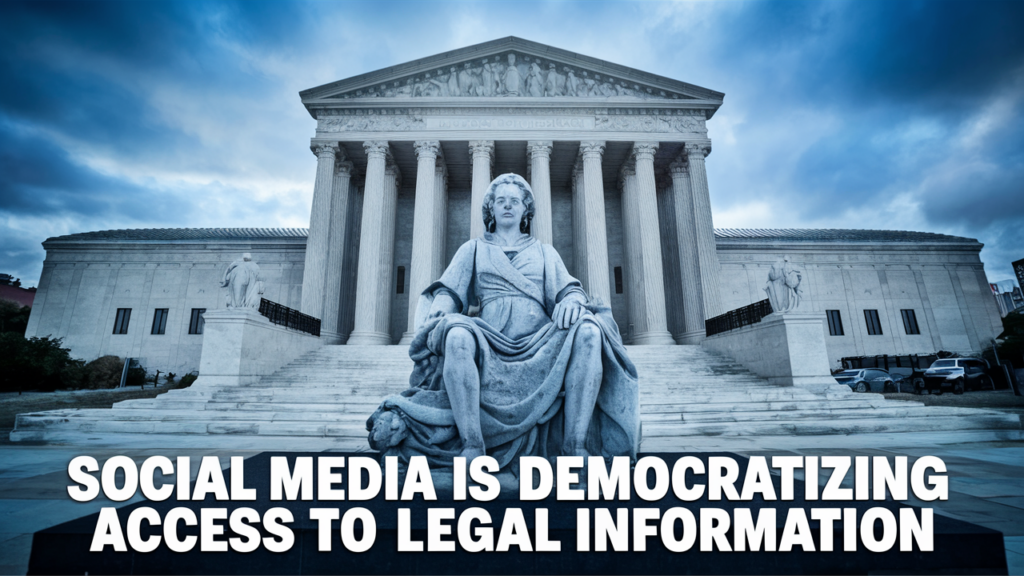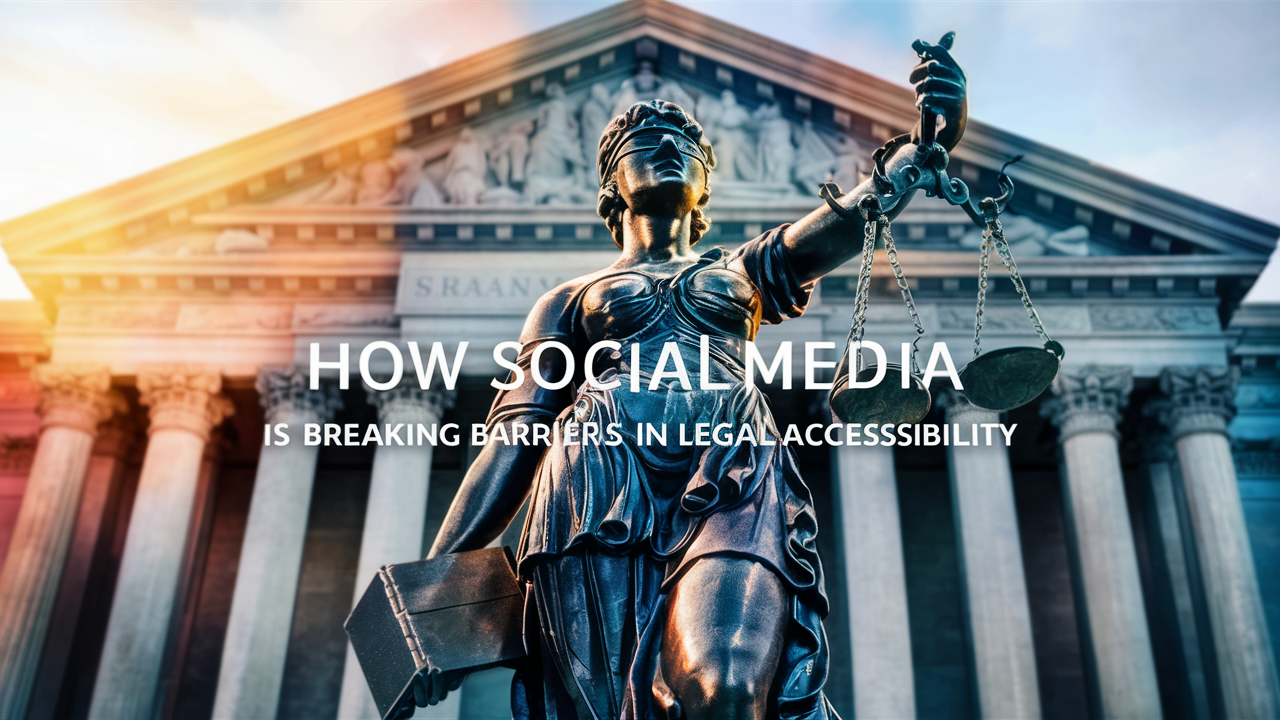In a world where information is king, access to legal knowledge often remains barricaded behind walls of complexity and expense. But what if these walls could be demolished? Enter the era of social media, a powerful tool that is transforming the landscape of legal accessibility. This transformative tool is not only shaping how we interact, but also how we understand and engage with the law. By the end of this article, you’ll discover how social media platforms are breaking down barriers and democratizing access to legal information, truly unlocking justice for all. The revolution is here, are you ready?

- The Confluence of Legal Information and Social Media
- How Social Media is Breaking Barriers in Legal Accessibility
- The Role of Social Media in Informing Public Legal Decisions
- Case Studies: Social Media Platforms Facilitating Legal Knowledge
- The Impact of Social Media on Traditional Legal Platforms
- The Future of Legal Information Dissemination and Social Media
The Confluence of Legal Information and Social Media
In this digital era, the intersection of legal information and social media is becoming increasingly significant. Social media platforms like Facebook, Twitter, and LinkedIn have become vital sources of information for many people, including those seeking legal advice or information. This new trend is reshaping how legal information is disseminated and consumed. It’s not just about the availability of legal information, but also the ease of access and the potential for engagement and dialogue that was not possible with traditional legal sources. In short, social media is revolutionizing the legal information landscape.
How Social Media is Breaking Barriers in Legal Accessibility
Historically, access to legal information was often confined to a privileged few – mainly legal professionals and individuals who could afford the high cost of legal consultation. However, social media is breaking down these barriers, democratizing access to legal information. Many law firms, legal institutions, and even individual lawyers now use social media to share legal updates, interpretations of laws, and even offer free legal advice. This has made legal information accessible to a broader audience, ensuring that more people can exercise their legal rights and responsibilities.
The Role of Social Media in Informing Public Legal Decisions
Social media is more than just a platform for disseminating legal information; it’s a powerful tool for informing public legal decisions. Through platforms like Twitter and Facebook, legal professionals can share their insights on ongoing legal cases, informing the public’s perspective on these cases. Additionally, social media allows for real-time interaction, enabling the public to ask questions and get immediate feedback from legal professionals. This interactive nature of social media can help foster a better-informed public, capable of making informed legal decisions.
Case Studies: Social Media Platforms Facilitating Legal Knowledge
There’s no denying the fact that social media has become a significant tool for legal information dissemination. Let’s examine some case studies that exemplify this trend. For instance, Twitter has been used by lawyers and law firms to provide legal updates, while platforms like Reddit host communities where experts offer advice on legal matters. LinkedIn has also witnessed a surge in the use of its platform by legal professionals to share articles and engage in discussions about legal issues. These case studies clearly illustrate the expanding role of social media in facilitating legal knowledge.
The Impact of Social Media on Traditional Legal Platforms
In addition to creating new avenues for legal information dissemination, social media has also significantly impacted traditional legal platforms. For example, law firms are now leveraging social media to expand their reach, communicate with clients, and enhance their reputation in the industry. Similarly, online legal databases have had to adapt and integrate social media features to maintain their relevance in this digital age. Furthermore, traditional legal forums and message boards have seen a decline in popularity as users migrate to more dynamic, social platforms. Hence, the rise of social media has prompted a major shift in the way legal information is accessed and shared.
The Future of Legal Information Dissemination and Social Media
Given the current trajectory, the future of legal information dissemination looks increasingly intertwined with social media. As technology continues to advance, we can expect to see more innovative uses of social media in the legal sector. For instance, artificial intelligence could be used to create chatbots on social media platforms that provide basic legal advice. In addition, the popularity of video-sharing platforms suggests that we may see more legal professionals leveraging these tools to share legal knowledge in an engaging, easily digestible format. As we move forward, it’s clear that social media will continue to play a pivotal role in democratizing access to legal information.
In summary, as we’ve explored, social media is playing a pivotal role in democratizing access to legal information, breaking down barriers and reshaping how we interact with law. From informing public legal decisions to impacting traditional legal platforms, its influence is profound. With the proliferation of social media platforms facilitating legal knowledge, the future of legal information dissemination is exciting. The revolution has indeed started, echoing the call for a more informed, transparent and accessible legal landscape. Truly, social media is unlocking justice for all.
